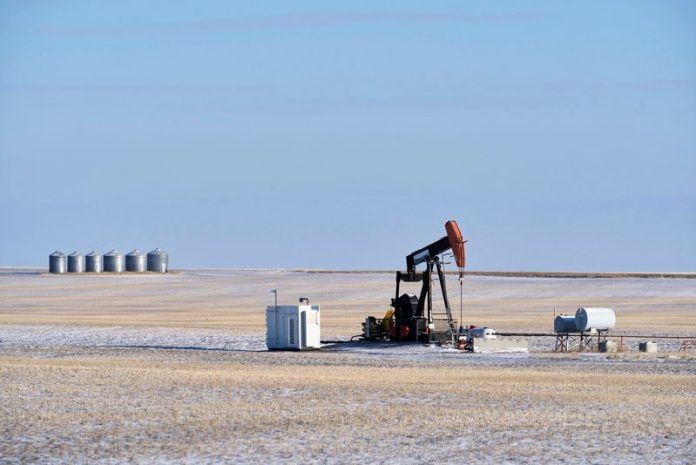By Scott DiSavino
NEW YORK (Reuters) -Oil prices climbed about 2% on Tuesday to a two-week high, as sanctions raised concerns about Russian and Iranian oil supplies, outweighing worries escalating trade tariffs would boost inflation and dampen global economic growth.
Brent futures rose $1.10, or 1.5%, to $76.97 a barrel by 1:42 p.m. EST (1842 GMT). U.S. West Texas Intermediate (WTI) crude rose 97 cents, or 1.3%, to $73.29.
That put both crude benchmarks up for a third day, on track for their highest closes since Jan. 28.
“With the U.S. bearing down on Iranian exports and sanctions still biting into Russian flows, Asian crude grades remain firm and underpin the rally from yesterday,” said PVM oil analyst John Evans.
U.S. sanctions targeting tankers, producers and insurers have significantly disrupted shipments of Russian oil to leading importers China and India.
Russia said U.S. sanctions should not affect Moscow’s oil trade with India, the world’s No. 3 crude importer.
Adding to supply jitters are U.S. sanctions on networks shipping Iranian oil to China after U.S. President Donald Trump restored his “maximum pressure” on Iranian oil exports last week.
Oil price gains were kept in check by fears that Trump’s latest tariffs could dampen global growth and energy demand.
On Monday, Trump raised tariffs on steel and aluminium imports to the U.S. to 25% “without exceptions or exemptions.”
Mexico, Canada and the European Union condemned Trump’s decision to impose tariffs on all steel and aluminium imports next month, a move that has fanned fears of a trade war.
“Tariffs and counter-tariffs have the potential to weigh on the oil-intensive part of the global economy in particular, creating uncertainty over demand,” Morgan Stanley said in a note.
“However, we think this backdrop will probably also cause OPEC+ to extend current production quotas once again.”
OPEC+, the Organization of the Petroleum Exporting Countries and allies including Russia, said this month it would stick to its policy of gradually raising oil output from April.
OPEC member Saudi Arabia’s crude supply to China is set to slide in March from the prior month, trade sources said, after the kingdom hiked prices to the highest in more than two years.
In the U.S., Federal Reserve Chair Jerome Powell told lawmakers that free trade still makes sense but it was not the central bank’s role to comment on tariff or trade policy but to react to how it impacts the economy.
A majority of economists in a Reuters poll forecast the Fed would wait until the next quarter before cutting interest rates again.
Tariffs can cause prices and inflation to rise. The Fed uses higher interest rates to combat rising prices. So long as the Fed and other central banks keep interest rates higher for longer, borrowing costs will remain elevated, which can slow economic growth and ultimately demand for oil.
SUPPLY, DEMAND AND INVENTORIES
World oil supply and demand will both rise to record highs in 2025 and 2026, the U.S. Energy Information Administration (EIA) said in its Short-Term Energy Outlook (STEO). [EIA/M]
EIA projected total world petroleum production would rise to 104.6 million barrels per day (bpd) in 2025 and 106.2 million bpd in 2026 from a record 102.8 million bpd in 2024.
The U.S. agency also projected total world petroleum consumption would rise to 104.1 million bpd in 2025 and 105.2 million bpd in 2026 from a record 102.8 million bpd in 2024.
The market is waiting for the American Petroleum Institute trade group to release U.S. oil inventory data on Tuesday, with the EIA to report official data Wednesday. [EIA/S] [API/S]
Analysts forecast energy firms added about 3.0 million barrels of oil to U.S. stockpiles during the week ended Feb. 7.
If correct, that would be the first time energy firms added oil into storage for three weeks in a row since mid-November. That compares with an increase of 12.0 million barrels during the same week last year and an average build of 4.9 million barrels over the past five years (2020-2024).
(Reporting by Scott DiSavino in New York and Ahmad Ghaddar in London; Additional reporting by Enes Tunagur in London and Siyi Liu in Singapore; Editing by Angus MacSwan, David Goodman and Nia Williams)
Disclaimer: This report is auto generated from the Reuters news service. ThePrint holds no responsibility for its content.






